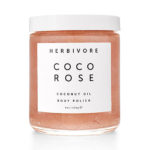Since the 19th century, scientists have been proving that marriage is good for your health. But as recent research has shown, it’s not as simple as tying the knot to ward off the Grim Reaper. It turns out that “it is the relationship, not the institution, that is key,” as marriage historian Stephanie Coontz tells the New York Times. Good marriages are good for your health; bad marriages, not so much. And even within happy, loving marriages, the way that you handle conflict can impact your health. In other words, you may be head over heels in love, but if you fight dirty, then you’re a cigarette habit to your partner’s heart. (Literally: One recent study showed that a stressful marriage can be as bad for the heart as a regular smoking habit.) Some other interesting tidbits from the NYT magazine article that nicely summarized the recent research in this field:
- “Despite years of research suggesting that single people have poorer health than those who marry, a major study released last year concluded that single people who have never married have better health than those who married and then divorced.”
- “Married people are less likely to get pneumonia, have surgery, develop cancer or have heart attacks. A group of Swedish researchers has found that being married or cohabiting at midlife is associated with a lower risk for dementia. A study of two dozen causes of death in the Netherlands found that in virtually every category, ranging from violent deaths like homicide and car accidents to certain forms of cancer, the unmarried were at far higher risk than the married.”
- The results [of a recent test] showed that the women in unhappy relationships and the women who remained emotionally hung up on their ex-husbands had decidedly weaker immune responses than the women who were in happier relationships (or were happily out of them).”
- And this immune response can happen in real-time, too. In another test, fairly happily married couples were blistered on their arms (don’t worry, they were paid for it!) and then encouraged to discuss either pleasant or contentious topics: “After the blistering sessions in which couples argued, their wounds took, on average, a full day longer to heal than after the sessions in which the couples discussed something pleasant. Among couples who exhibited especially high levels of hostility while bickering, the wounds took a full two days longer to heal than those of couples who had showed less animosity while fighting.”


















As an academic myself, I’d have to say don’t believe everything you read in studies. Studies can be used to support or refute ANYTHING.